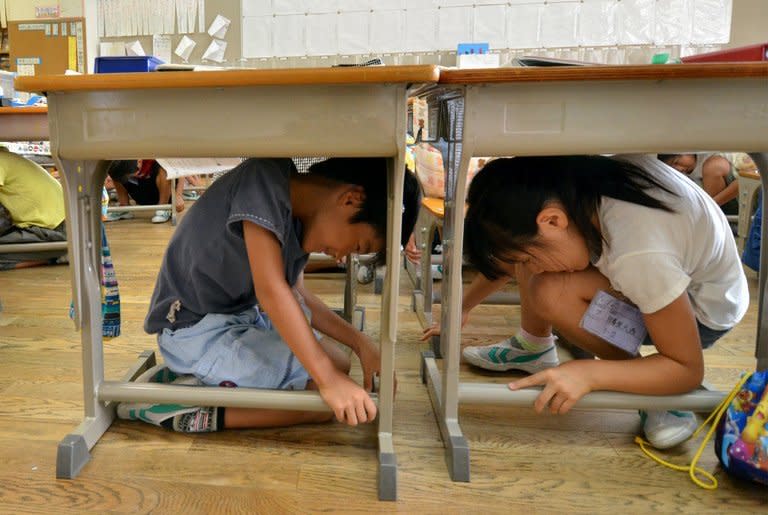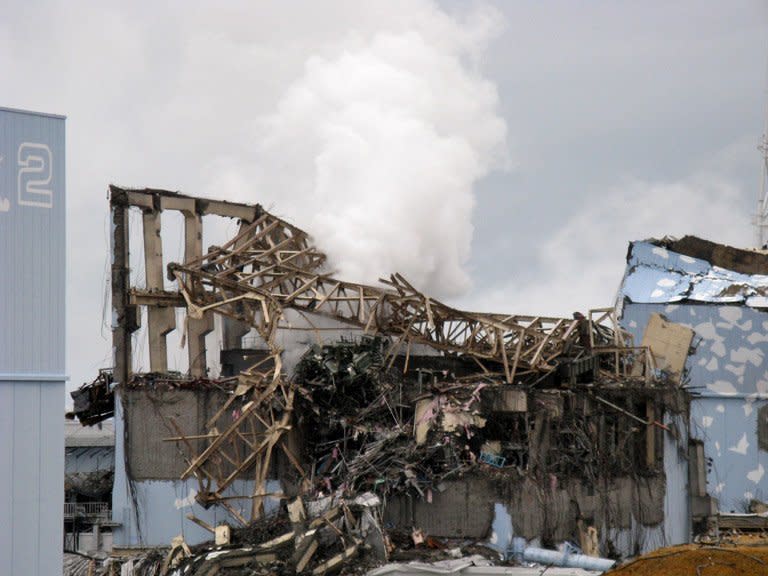Tokyo 2020 Olympic bid shadowed by Fukushima
The battered nuclear plant at Fukushima, where radioactive water is leaking into the ocean, hangs over Tokyo's bid for the 2020 Olympic Games. The shadow it casts loomed even larger on Wednesday when a powerful earthquake rattled the Japanese capital, reinforcing worries at home and abroad about safety. The 6.5-magnitude earthquake hurt no one and caused no damage -- Tokyo has some of the best quake-proofing in the world -- and the operator of the nuclear plant, Tokyo Electric Power, was quick to say there was no new damage. But just two-and-a-half years into what could be a four-decade clean-up, the nuclear disaster sparked by an earthquake and tsunami is very much the Achilles heel of Tokyo's efforts to bag the Games. Olympic chiefs meet in Buenos Aires on Saturday to choose between Tokyo, Madrid and Istanbul. Supporters of Japan's bid -- chief among them Prime Minister Shinzo Abe -- insist the plant, 220 kilometres (130 miles) north of the city, poses no danger to athletes or spectators. "Voices of concern have been raised about the waste water problem in Fukushima," said Abe, referring to a series of leaks of radioactive water, some of which has made its way into the sea. "The government will stand at the forefront to completely fix this problem. I want to explain that this is not going to be a problem in any way in seven years' time," he said. The Japanese government has argued that a 2020 Tokyo Olympics would inspire the world by showcasing how Japan has recovered from the triple catastrophe of March 2011. Japan's northern Pacific coastline was hit by a 9.0-magnitude earthquake, unleashing a towering tsunami that killed more than 18,000 people. Cooling systems at Fukushima Daiichi nuclear plant were swamped. Reactors went into meltdown and spewed radioactive materials over a tract of prime farmland. Tens of thousands of people were evacuated from their homes; many are still unable to return. TEPCO has spent the last two-and-a-half years struggling to get on top of the problems at the complex. Over the last few weeks, a steady stream of news has revealed seepage from tanks storing radioactive water, much of it used to cool molten reactor cores. The government on Tuesday pledged to step in with a half-billion dollar plan to staunch leaks and stop groundwater from becoming polluted. Sceptics said Tokyo was stumping up taxpayer cash to counter aggressive coverage in the foreign press and reassure the International Olympic Committee. But supporters insist fears over Fukushima are genuinely overblown, particularly abroad. Bid committee chief Tsunekazu Takeda has repeatedly insisted Fukushima has no impact on daily life in Tokyo and would not affect the Games. He and others say it is safe to live, eat and drink in Japan, with produce from Fukushima and the surrounding region screened for radiation contamination. Takeda has written to members of the IOC to persuade them "Life is completely normal" in the Japanese capital. The current problems at Fukushima do not not affect Tokyoites, agreed Takashi Sawada, director general of the Atomic Energy Society of Japan. "Seafood caught from the ocean is being inspected, while contaminated food is barred from the market," he said. "We should not be concerned at all." Activists disagree, charging that cosy relationships between government, industry and regulators mean it is difficult to know the real truth. Miwa Chiwaki, one of nearly 15,000 people who is suing TEPCO, said the situation is out of control. "I have to question if we should really bring the Olympic Games in Tokyo," she said. "The Japanese government does not realise that the toxic water leaking is as serious as the nuclear accident itself."





